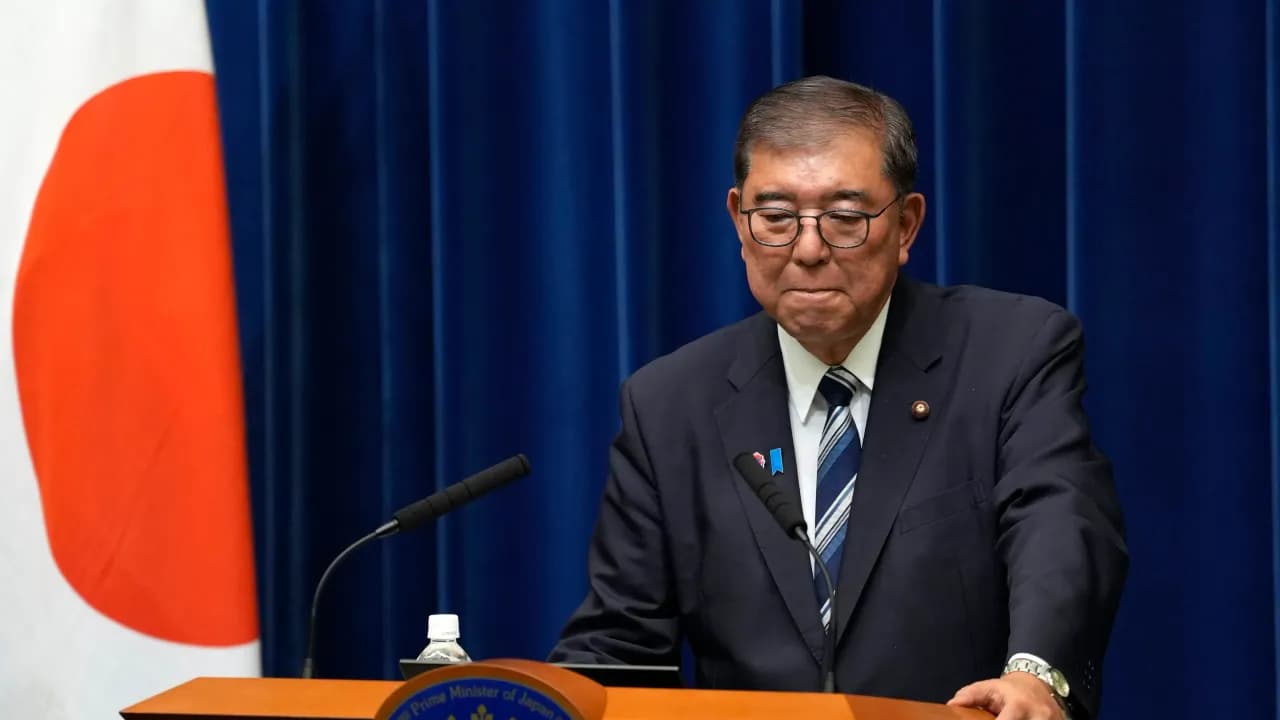The outgoing prime minister believed it was his responsibility to resolve the tariff issue, as he viewed it as a “national crisis.”
Japanese Prime Minister Shigeru Ishiba, who was instrumental in clinching the historical tariff deal with the U.S. after protracted negotiations, has called it quits. The move was expected as the ruling Liberal Democratic Party (LDP) lost its majority in the lower house in an election held in July.
With that, the LDP was without a majority in either house for the first time.
Japanese public broadcaster NHK reported on Sunday that Ishiba conveyed his decision to step down at a press conference and clarified that he would not run in the LDP’s upcoming special leadership contest.
The Japanese stock market has reacted broadly positively to the development. On Monday, the Nikkei 225 average climbed nearly 1.50% at last check.
The iShares MSCI Japan ETF (EWJ), an exchange-traded fund (ETF) that tracks an index comprising Japanese stocks, has rallied 19% year-to-date (YTD). In comparison, the SPDR S&P 500 ETF (SPY), an exchange-traded fund (ETF) and the Invesco QQQ Trust (QQQ) have gained 11.10% and 12.98%, respectively, for the year.
On the other hand, the Japanese yen weakened significantly against the U.S. dollar, with the former’s retreat attributed to expectations that the Bank of Japan may not raise interest rates amid the uncertainty.
According to a Nikkei report, Tokai Tokyo Intelligence Laboratory analyst Ryotaro Sawada said, “With rising political uncertainty, the market is starting to doubt whether the Bank of Japan will be able to raise rates this year.”
The next rate-setting meeting of the central bank is scheduled for Sept. 18-19.
The NHK report stated that Ishiba’s decision to step down was due to a sense of closure, as the U.S.-Japanese trade deal is now officially concluded, with U.S. President Donald Trump signing an executive order to that effect last week. Apart from confirming the 15% tariff rate, the deal also reduced the auto tariffs to the baseline rate from the 27.5% discussed previously.
The outgoing prime minister felt that it was his responsibility to close the deal as he viewed the tariff imbroglio as a “national crisis.”
President Trump, meanwhile, reacted to the development. Talking to reporters in Washington after heading back from watching the U.S. Open finals in New York, the U.S. president said, “I was surprised, because I knew him, I liked him, and he’s just now stepping down,” Japanese National Daily Mainichi reported. “I found him to be a very nice man, actually. We dealt very well together.”
Before his departure to the sporting event, when he was asked about the leadership change in Japan, he professed no knowledge of it.
A U.S. State Department official reportedly told Kyodo News that regardless of Ishiba’s decision, the U.S. looks forward to “continuing our work with the government of Japan.”
Trump was non-committal when a reporter asked whether he would visit Japan this fall, along with South Korea, which hosts this year’s Asia-Pacific Economic Cooperation (APEC) meet.
Looking ahead, the LDP is considering how to choose its new leader, with former party Secretary General Motegi Toshimitsu reportedly throwing his hat in the ring, according to a separate NHK report. The party is discussing the format and schedule of a leadership race, it added.
For updates and corrections, email newsroom[at]stocktwits[dot]com.<
